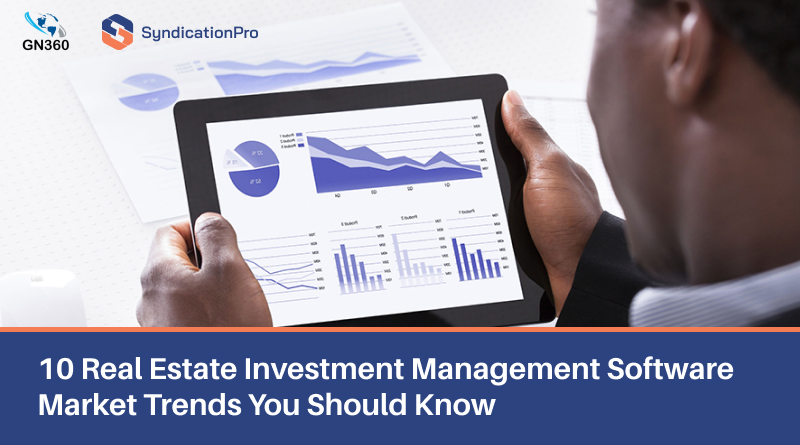
As a real estate investor, your plate is always full of various activities. You have things to do, places to go to, family and friends to meet, and bills to pay, among many other things. This barely leaves you with enough time to manage and keep track of your investments.
This is where real estate investment management software comes in. The technology allows you to maintain, organize, and nurture your real estate assets. Think of the software as an assistant in streamlining your management activities and complying with local and federal regulations.
Real estate investment management software, also known as lease management software, has significantly changed how investors and stakeholders manage their relationships, leverage on property value, and maximize their returns. So, what are the next trends for the real estate management software scene?
- Move to the Cloud
Cloud technology has been around for a while and has quickly been gaining popularity. For a long time, many applications and services were server-based. However, people are now ditching that in favor of the cloud.
Cloud computing avails services through the internet. In real estate management, it allows investors to access management services through the web, as long as they have access to the internet. Investors can log in to their management platforms at any time of the day and see their financial and property information.
2. Big Data
Big data refers to collecting, analysing, and organizing data to provide future behaviour and predictions. For example, big e-commerce platforms use big data to recommend products you might be interested in based on your past shopping experiences.
In real estate management, big data will be used to collect data on when potential investors visit your platform, what they search on the site, and predict when they might be ready to purchase or sell a property. Real estate investors can also use big data to predict how many potential tenants might turn up for the next property showing and how much they should price their property.
3. Virtual and Augmented Reality
Virtual and augmented reality are some of the technologies set to revolutionize the face of real estate technology. Imagine not having to move a finger when showing investors or tenants your property. Amazing, right?
Virtual reality allows investors and tenants to take a virtual tour of the property, regardless of location. This means they can “visit” the property at any time of the day. Clients and agents save time and money while increasing efficiency.
4. Internet of Things
The Internet of Things allows different devices within the property to be interconnected. They could include plumbing, electrical, and lighting systems as well as the security system. The investors or agents can then perform different activities via the internet. For example, an investor can log in to the management software and turn on the lights during the evening.
5. Accounting Features
We tend to think about complicated features each time we think of tech. However, real estate management software features could be as straightforward as accounting. Real estate investors have to keep track of bills to pay, expected rent payments, and deposits. With management software, these tasks don’t have to be a pain in the neck. The software allows real estate owners to receive payment electronically and issue receipts immediately.
6. Automation
Sometimes investors and property managers are too busy micromanaging all the tasks involved with property management. This cycle can be exhausting and lead to burnout. How about an assistant that helps you with the massive documentation, filing, and recording transactions? Real estate management technology is moving towards helping you with the monotonous tasks so that you only focus on the productive ones. For real-estate syndicators, it is essential to automate such repetitive tasks as distributions, K1s filings, investor updates, etc. Modern real-estate syndication software allows the creation of waterfall-based on ownership or custom distributions and automatically calculates distribution amounts based on classes and % of total offering. With robust document management, you can automate sharing of the K1s.
7. Tenant Screening
Tenant screening is one of the essential activities of property management. If done well, you’re assured of an unproblematic tenant who pays their rent on time. Various online resources provide tenant history reports at a fee. In the future, we can expect to see real estate management software integrated with these resources to enable you to access tenant information efficiently.
8. Push Technology
Push technology is popular with agencies that have developed their own smartphone apps. This technology allows the agencies to send notifications to their investors and tenants’ locked smartphone screens. This technology has been proved to improve client retention rates and engagement experience.
9. Artificial Intelligence
Nowadays, all clients expect their concerns and queries to be treated with a sense of urgency. This is where Artificial intelligence and robots come in. In real estate management, they appear in the form of chatbots, voice bots, and virtual assistants. They respond to queries immediately and also allow investors to go about their daily activities uninterrupted.
10. Mobile Apps
Accessibility and mobility are some of the core principles of real estate management software. Many software developers are now also including a smartphone app with the software package. This allows investors, agents, and property managers to access their real estate data from anywhere using any device. You could be inspecting your property in the morning then moving around with the data you collected in your hands.
Key Takeaways
There are several real estate investment management software trends to note. In the future, you can expect to see features such as accounting, virtual reality, artificial intelligence, and push technology. Big data is also being used to make better business decisions, such as pricing your property.
Stay Connect with Get News 360 & Follow our Tech Blog, We cover all tech topics, Sharing content regular basic, I also accept Technology news via blogger & Tech company, so If you want to publish your technology content than checkout our technology write for us guidelines.